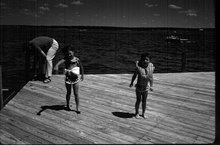
July 1943
What would I be looking for when I did not find what I wanted to find? At most I travel to Moravia to the region of Leos Janacek, his Hukvaldy--but here I am again, talking about music. In music you find everything… Music has to be inside you.
--Josef Sudek
When you bound the terrain of what you love by light and the angle of light, by a shadow cast and the time of exposure, you love in a desert of tentative gestures. Often Sudek was irritated with the young, with their casual dismissal of the magnitude of what stood to be lost. After losing his arm in the war, he struggled with the dark card life had dealt him. But he recovered, through light, through, at first, only the faintest apprehensions of the beauty that settled quietly all around. After the Nazis occupied Prague, a one-armed man lugging a large camera through the streets was too suspect--there was only then the windowsill. But still, it moved his heart to the point of breaking. Ah, youth! Why not love, deeply and powerfully? Why wait for it all to be taken away, all the while you wonder, is this enough? The window, with its changing light, its rain-streaked sorrow or light-soaked joy, was connected intrinsically to his heart, and he sought to communicate this message to that one person who would understand, even if he would never know when that magical moment happened. Who would understand his soul limned in the hesitant light from a small window?
In this window of time, I am listening to Bach and Sudek’s Janacek, thinking of my grandfather. Did he love? Surely he loved my mother. He expended a limitless amount of film on her. She was the only one after all, my grandmother having miscarried on the train ride to Chicago where my grandfather had been beckoned to become the Assistant District Attorney. What would have become of them, of us, if he had been allowed that? His father insisted he would stay, that his place was here, on the Plains. I think much of this was about my mother, so many hearts invested in her. Why had she become the gravitational force around which the solar system that was my family orbited? She was rare fruit. A prodigal daughter, the only one who would ever bear evidence that this family had existed, for what good are files filled with legal documents and negatives, if there is no one to wonder? In a way he suffered Sudek’s loss, an amputation of sorts, but the light dissolved the living before his eyes. The images were not gifts, but an empty, silent wilderness where he roamed.
And the girl? She loved because it was impossible-- in spite of and because of rain-streaked sorrow and light-soaked joy. She knew no other way. She had come into this world already aware that it had all happened, that it was gone, and love was already mourning. There was vigilance in her attention to the slightest impression in the grass, or the dampness on a pillow where a feverish child’s head had lain. She wandered through her life like a ghost, acutely aware of the layers of longing she passed through, and what she was looking for, she knew, she would never find. She had realized long ago that she would never be at home in the interpreted world, never be a home to anyone. Her exile was the space between what was longed for and what was gone.
Fling the emptiness out of your arms
into the spaces we breathe; perhaps the birds
will feel the expanded air with more passionate flying.
When we sing our hymns to the dead, do they hear?



